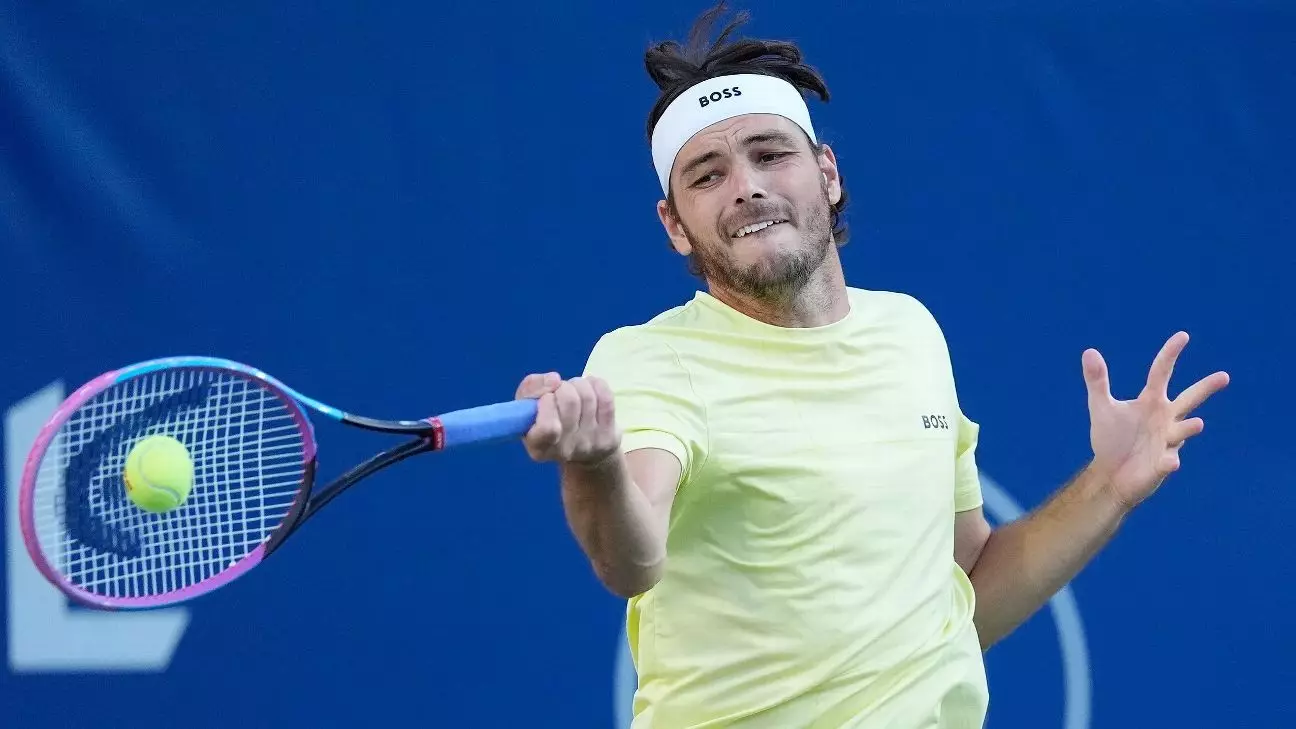The recent matches at the National Bank Open have showcased more than just technical prowess—they have emphasized the importance of mental resilience and strategic adaptability in tennis. Second-ranked American Taylor Fritz’s convincing victory over the towering Canadian Gabriel Diallo offers a testament to the evolving landscape of men’s tennis. While Diallo’s physical presence (standing at 6-foot-8) might intimidate many, Fritz’s unwavering focus and tactical intelligence allowed him to dominate with a 6-4, 6-2 win. This encounter underlines an essential truth: raw power alone cannot always secure victory; mental toughness and experience are equally crucial. Fritz’s calm demeanor during the match and the expressed appreciation for the supportive atmosphere reflect how professionalism often triumphs over hostility or expectations of hostility—something many rising players should learn.
Moreover, Fritz’s upcoming match against Czech Jiri Lehecka promises an evolving narrative rooted in resilience and adaptability. Lehecka’s ability to turn around a three-set battle demonstrates that consistent effort and mental endurance can shift the scales. This progression is emblematic of a broader trend where technical skills are necessary but not sufficient; players must also possess the stamina to persist through intense, fluctuating momentum.
Surprising Upsets and the Challenge of Competition
In the evening’s schedule, the intense duel between Ben Shelton and Brandon Nakashima exemplifies the unpredictable nature of tennis. Shelton’s victory—against a challenging opponent—is a reminder that energy, focus, and strategic game plans can overcome even the most grueling matches. His upcoming confrontation with Flavio Cobolli will be another test of his mental fortitude, an opportunity to prove that grit can be as decisive as skill.
Meanwhile, the match where Andrey Rublev outlasted Lorenzo Sonego also highlights the necessity of adaptability. Rublev’s acknowledgment that his aggressive play and mistake minimization were pivotal indicates that relentless self-awareness often makes the difference during high-stakes moments. For players at this level, being adaptable—altering tactics depending on the situation—becomes the key to survival and success.
The Tournament’s Depth and Challenges for Top Seeds
While many top-ranked players like Jannik Sinner and Carlos Alcaraz opted to skip the event, their absence underscores the unpredictable nature of tennis scheduling and strategic choices. Their decision emphasizes that resilience extends beyond the court, involving careful planning and prioritization. For other competitors, this creates new opportunities and emphasizes the importance of mental agility to capitalize on such moments.
Despite its partial field, the tournament continues to demonstrate that the path to victory is fraught with challenges—be they physical, mental, or strategic. Players like Frances Tiafoe and Alex de Minaur exemplify fighting spirit, with Tiafoe edging out Vukic and de Minaur capitalizing on his opponent’s withdrawal. Both instances emphasize that even setbacks—whether losses or withdrawals—are part of tennis’s relentless pursuit of excellence. What distinguishes champions is their ability to maintain resilience and focus amidst volatility.
The ongoing matches serve as more than just a showcase of athletic excellence—they are a testament to the resilience of the human spirit in competitive sports. The tournament’s narrative is one of relentless perseverance, strategic fortitude, and the quiet acknowledgment that victory often belongs to those who refuse to give up when faced with formidable opponents and unforeseen challenges.


Leave a Reply